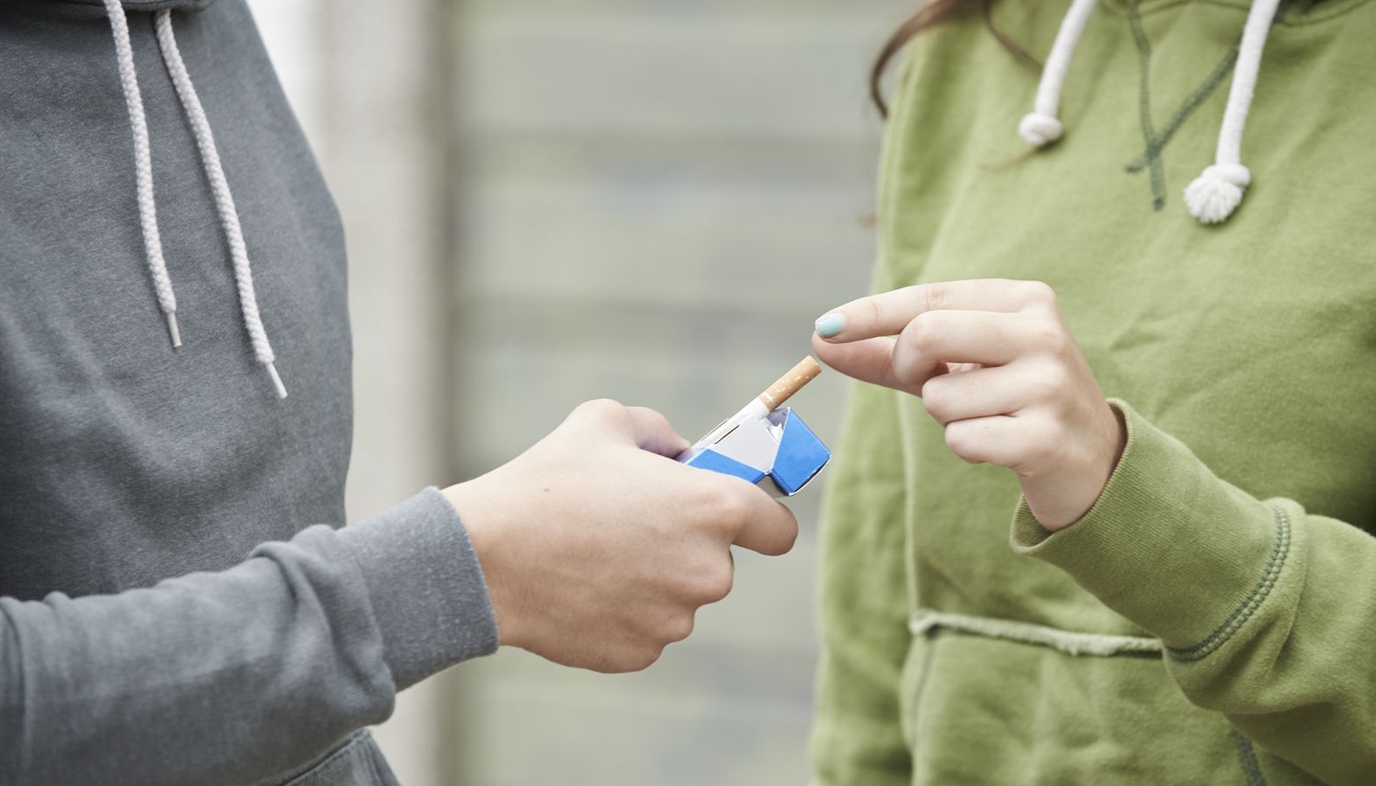
A tween is a person between the ages of 9 and 14. Parents are all too familiar with this developmental stage because it can be tricky, especially with new issues presenting themselves consistently. Some of the more common tween issues include smoking, abuse of phone privileges, body image, menstruation, and negative peer influences. Parents must learn to deal with these potential problems, and the best way to overcome them is to communicate effectively and often with your tween. Talk about issues before they arise and discuss solutions. Ask questions even if your tween insists there is “nothing wrong.” It’s important to trust your instincts, and by doing so, you will be better equipped to help navigate your tween through these years.
Smoking
Smoking kills nearly half a million Americans every year. Unfortunately, 2000 youth get addicted every day, and 1 in 3 smokers will die prematurely because of tobacco. Advertising markets to tweens in magazines, television, and movies. Keeping your tween from lighting up is an ongoing challenge. Take the time to explain your thoughts about smoking. If you don’t want your kids to smoke, make it clear. Explain to them that cigarettes contain tar, carbon monoxide, nicotine (the drug that makes smoking addictive), and chemicals. Tobacco is toxic to your body. It causes more health problems and early deaths than all illegal drugs combined. When you smoke, the risk of strokes, lung cancer, and heart disease increases significantly. Convey these messages as often as possible. As a parent, model good behavior. If you smoke, it’s going to be extremely difficult to convince your tween not to!

Phone Privileges
Ask any parent: telephones and tweens go hand in hand. Most tweens spend an average of 2-3 hours a day on the phone talking about things like their crush at school or what to wear to the football game. Obviously, rules need to be set if phone use starts interfering with homework or chores. Require that these priorities be completed before using the phone and have consequences if your tween does not abide by the rules. Loss of phone use would be appropriate. If you have more than one tween at home, set specific times that each one can use the phone and have them take turns accordingly. If your tween has a cell phone, this can become very pricey with text messages and Internet use. Have your tween pay a determined portion of the bill or you can purchase prepaid minutes to prevent them from racking up high bills.
Body Images
Studies show that body image can be a huge problem for tweens and can lead to eating disorders later on in life. Our culture seems to be obsessed with physical appearance. Images in the media usually have unrealistic standards. Help your child develop a positive body image because this can be closely linked to self-esteem. For example: when girls hit early puberty, they may experience some weight gain as their body changes shape. Keep your comments positive and realistic. This is a great time in your daughter’s life. Reassure her that this new shape is a positive sign of more changes to come as she grows into a woman. Pay attention to what you say about yourself as well. Be a good role model. Do not criticize your own body or put yourself down. This sends a message to your kids that your body isn’t good enough. If your doctor determines that your child DOES need to lose some weight, emphasize good health and fitness as a family instead of singling out your overweight tween. Go hiking or biking on the weekends as a family unit to encourage togetherness rather than attractiveness. Good nutrition, along with exercise, will relieve stress and make your tween healthier and happier.

Menstruation
A first menstrual period is a big deal in a tween’s life. They may feel a mix of emotions (from excited to worried) about reaching this rite of passage into womanhood. Menstruation can be a scary thing, because they know it involves blood and some pain. A couple years beforehand, girls notice the beginnings of puberty. Breasts start developing, they get some pubic hair “down below,” and their body starts changing shape. It’s important as parents to discuss menstruation before your daughter’s first menstrual period and talk about it in a positive light. Bring some props along (tampons and sanitary napkins) so your tween can interact with these items before she actually needs them. This will help her feel more in control. It’s a safe bet that your daughter will not want to talk about this conversation in public, so the privacy of your own home is best. It’s also important to discuss that menstruation means she can become pregnant. This may be a perfect springboard for a discussion on birth control and your rules regarding romantic relationships as well.
Negative Peer Influences
There is a good chance you are not going to like ALL of your tween’s friends. You might be reacting to something superficial, like the way a person dresses or their manners, but that doesn’t necessarily make them bad influences. However, sometimes the issue is more serious. You might suspect that contact with a particular friend puts your tween at risk. Your worries might include: skipping school, shoplifting, taking drugs, drinking, or driving dangerously. It may have more to do with the “attitude” you see developing in your tween as the friendship develops. Forbidding this relationship may not be the best way to put an end to it, because your tween is likely to rebel. The most important step you can take in this type of situation is to encourage them to make responsible decisions for themselves. If they are feeling pressured to do something they are not entirely comfortable with, you might be their best source of information about alternatives. Empower your tween to be confident in their own choices. Just remember, your tween will still take risks, make mistakes, and suffer the consequences. It is all a normal part of growing up.
